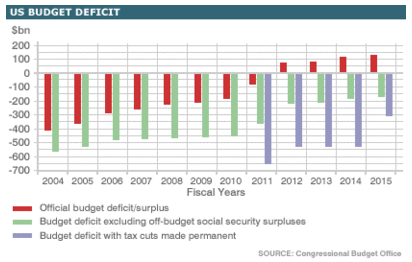|
|
|
|
|
|
|
News & Views item - February 2006 |
![]() US Research Budget for 2007. (February 7, 2006)
US Research Budget for 2007. (February 7, 2006)
Presidential science advisor Jack Marburger describes as basic research in the physical sciences that which is "most likely to generate the sort of results that will create technologies to improve U.S. competitiveness." Those areas include nanotechnology, networking and information technologies, materials science, engineering, and some areas of chemistry, physics, and mathematics.
Science reports:
Basic research at the Department of Energy (DOE) and the National Science Foundation (NSF) are the big winners in the 2007 budget that President George W. Bush submitted to Congress on Monday. Spending by DOE's Office of Science would rise by US$504 million, or 14%, to US$4.1 billion, while NSF's budget would grow by US$435 million, or 7.8%, to US$6.02 billion. That's a dramatic jump compared to overall federal spending on research and development, which would inch up by less than 2%, to US$137 billion. Many research agencies are expected to receive flat or declining budgets as the Bush Administration tries to reduce domestic discretionary, non-defence spending while continuing the war in Iraq and Afghanistan.
The Bush administration indicated that it wants to double the NSF and DOE science budgets over 10 years, and has promised to do the same for core research programs at the National Institute of Standards and Technology (NIST).
The additional funding of US$87 million DOE's nuclear physics programs looks as though it will allow nuclear physicists to keep open both the Brookhaven National Laboratory (BNL) in Upton, New York, and the Thomas Jefferson National Accelerator Facility (JLab) in Newport News, Virginia. Earlier it appeared that one or the other would have to be closed down.
In addition BNL also receives US$45 million from the DOE basic energy sciences program to upgrade its synchrotron light source.
However, Science also reports that:
the US$800-million education directorate would grow by only 2.5%. The proposed US$20 million increase would be a big improvement over the double-digit declines proposed by the Bush Administration in its previous two budgets, which Congress partially reversed. But the US$816 million requested is still $27 million lower than what the directorate received in 2005.
The education department also has a role in the American Competitiveness Initiative, namely, to improve math and science education at elementary and secondary schools. Toward that end, the department has proposed two new programs, called Math Now, as well as a national panel of experts to evaluate current practices. The administration also wants to recruit up to 30,000 working scientists and engineers to volunteer in the nation's classrooms.
